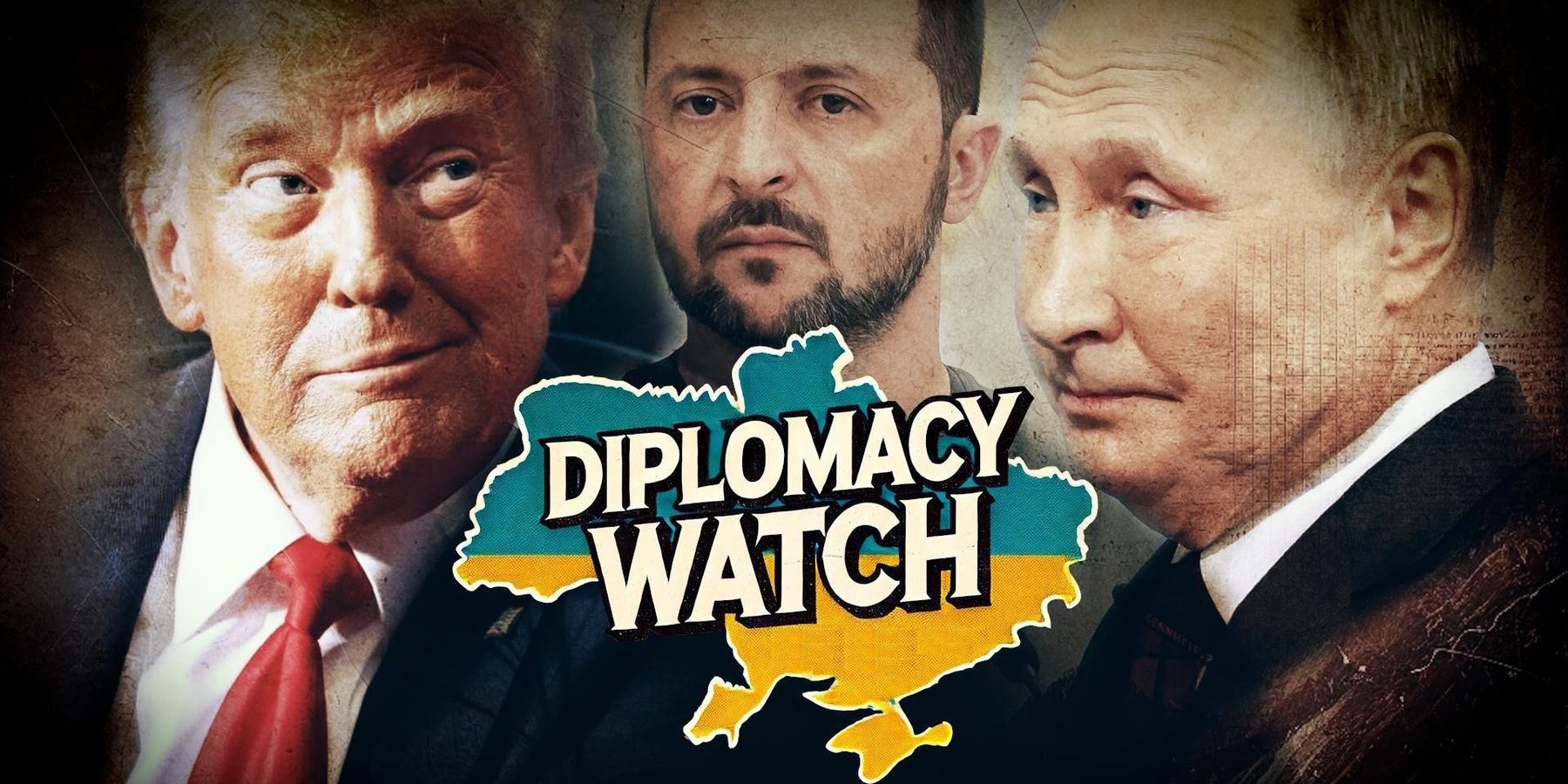The Trump administration has threatened to move on from negotiations to end the war in Ukraine after less than enthusiastic signals from Ukrainian leadership for President Trump’s plan for peace and Russia’s continued attacks on civilians in Ukraine.
Trump reportedly presented the plan to both parties earlier in the week, and afterward stated that Russian President Vladimir Putin was ready to accept the deal, but Ukrainian President Volodomyr Zelenskyy was resisting, which left Trump “frustrated.”
“I think we have a deal with Russia,” Trump told reporters, while indicating that Zelenskyy has been “harder” to convince.
For his part, Zelenskyy told reporters he opposed the plan’s purported recognition of Russia’s annexation of Crimea, saying that it “violated our Constitution. This is our territory, the territory of Ukraine,” said Zelenskyy. Trump responded by stating that rejecting the deal would only “prolong the ‘killing field.’”
Whether Ukraine can legally recognize Russia’s annexation of Crimea may not matter, as the Trump team asserted that the United States could recognize Russia’s de jure annexation of Crimea without Ukraine having to do so as well.
Meanwhile, Trump is also criticizing Putin, and just not for his reaction to the peace deal. The Russian president was on the receiving end of Trump’s social media ire after Russia launched a deadly wave of attacks on Kyiv.
In its largest attack on the Ukrainian capital since last summer, Russia launched 70 missiles and 145 drones mainly towards Ukraine’s capital, claiming at least 12 lives and injuring 90 more.
“I am not happy with the Russian strikes on KYIV. Not necessary, and very bad timing. Vladimir, STOP! 5000 soldiers a week are dying. Let’s get the Peace Deal DONE!” the president said in a post on Truth Social.
“The Ukrainians have to go back home, they have to run it by their president, they have to take into account their views on all of this,” Secretary of State Marco Rubio said of the plan. “But we need to figure out here now, within a matter of days, whether this is doable in the short term. Because if it’s not, then I think we’re just going to move on.”
Vice President JD Vance held a similar position when questioned by reporters. “We’ve issued a very explicit proposal to both the Russians and the Ukrainians, and it’s time for them to either say yes or for the United States to walk away from this process,” he said.
Anatol Lieven, Director of the Quincy Institute’s Eurasia Program, said that if Washington moves on, “Ukraine will have placed itself in a terribly precarious situation, and West European countries may face a choice between deep humiliation and immense danger. For if U.S. aid is withdrawn, Ukraine’s ability to hold its present line would be greatly reduced, and the chances of a Russian breakthrough greatly increased.”
Other Ukraine War News This Week
Al Jazeera reports that Putin is ready for direct talks with Zelenskyy. The Russian president told Russian TV that he has a “positive attitude towards any peace initiatives.” Zelenskyy indicated that Ukraine would be willing to participate in direct talks after the Easter truce expired. Neither side has held direct talks since February 2022.
Russia’s top security official, Sergei Shoigu indicated on Thursday that Russia could use nuclear weapons if Western nations acted aggressively toward Moscow. According to Reuters, Shoigu said that Russia’s amended nuclear doctrine would allow Moscow to consider a nuclear strike if Russia or Belarus received a conventional strike from an enemy that “created a critical threat to their sovereignty and (or) their territorial integrity.”
Zelenskyy has met with South African President Cyril Ramaphosa to discuss improving trade and ending the war. Al Jazeera reports that the Ukrainian president cut his visit to Pretoria short due to Moscow’s strikes on Kyiv. South Africa has remained neutral on the conflict, pushing for dialogue between parties.
From the State Department briefing on April 22nd:
During questioning by reporters, spokesperson Tammy Bruce confirmed that General Kellogg would participate in the most recent round of negotiations with Moscow, and that Secretary of State Rubio and Special Envoy Witkoff were not guaranteed to do so.
She also indicated that President Trump is optimistic about the potential to solve the Russia-Ukraine war diplomatically. “Both the Secretary (of State) and the President have said that this cannot be won militarily, and so they want diplomacy to work,” she told reporters.- US-Europe divide on SWIFT could derail Ukraine peace talks ›
- Rubio: Trump ready to walk away from Ukraine peace talks ›
















